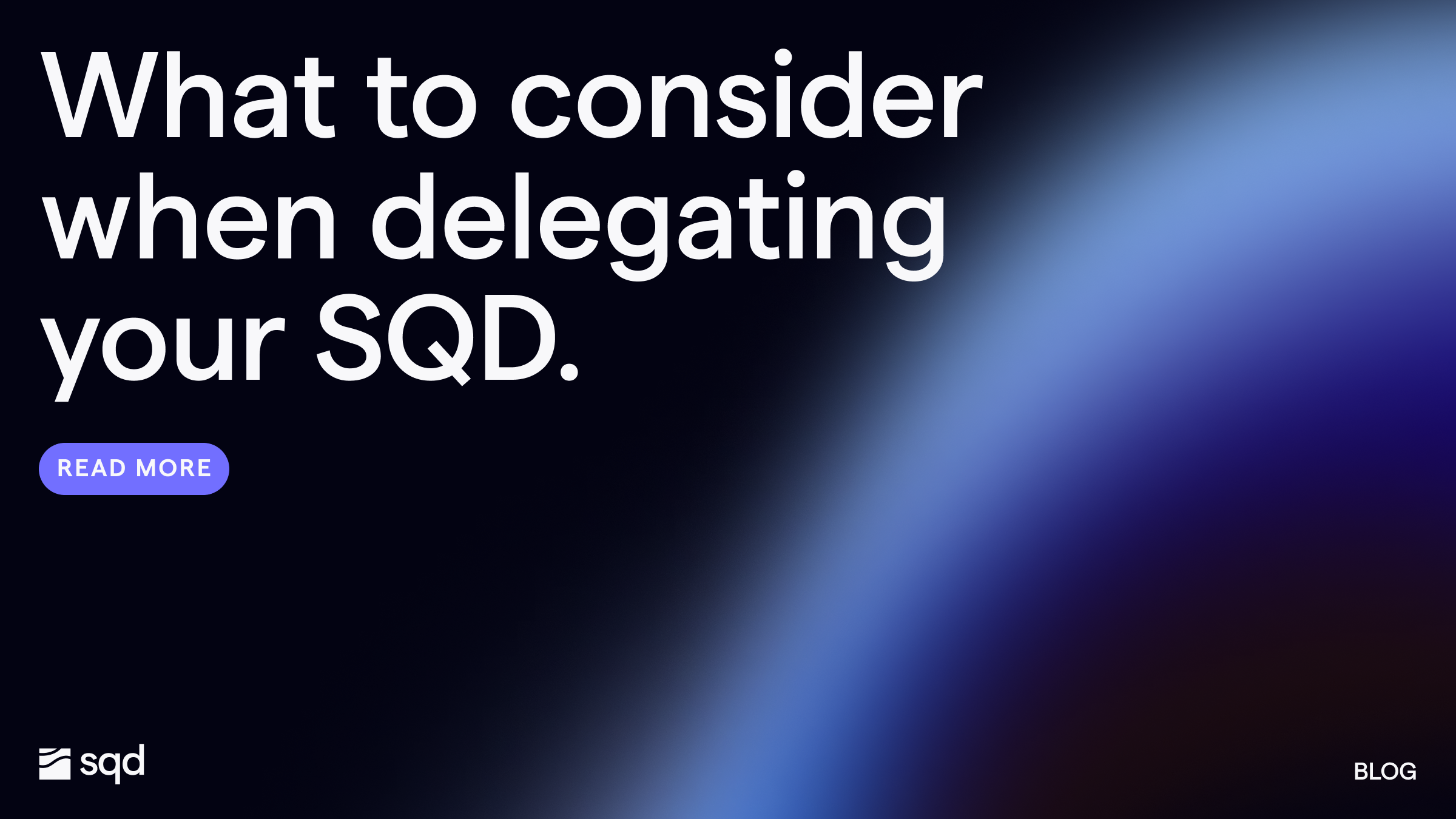What to consider when delegating your SQD

TL;DR: Distribute bigger amounts across worker nodes. Pick workers that have high uptime, sufficient delegation capacity, and decent APR.
So, you purchased some SQD and are now wondering what to do with it?
You could, of course, just HODL and wait for the next bull market.
But, if you wanted to use it more productively, may we suggest delegating?
What does delegating mean?
Just like in governance, delegating means giving some of your power to someone else in the hope they’ll make the most of it.
In the context of SQD network, there are over 1000 so-called worker nodes forming the backbone of the data access layer. To operate, each of them has to lock an amount of SQD, and can furthermore accept funds delegated by users. Whenever worker nodes diligently fulfill their duties of delivering data fast and correctly, they’re rewarded with SQD tokens.
To ensure that worker nodes are indeed selected depending on their performance, there’s a further mechanism: curation.
And this is exercised by people like you, who pick worker nodes to delegate their funds to.
Obviously, SQD also keeps track of each worker node's load and the data they delivered to pay them in fair.
This might sound intimidating at first, but it’s pretty easy as long as you consider a few things.
For one, a distributed network is more resilient than one consisting of only a few worker nodes. Therefore it’s not in SQD’s interest to have funds aggregate to a handful of nodes that reap disproportionate amounts.
Instead, even reward distribution is modeled in a way that encourage delegates to spread their funds.
Things to consider when delegating
Let’s say you have 10,000 SQD.
The first step to delegate is going to the network app. A technical tutorial of how to do it can be found here:

If you delegate all of that to one node, that’s not optimal. When entering the amount you want to delegate, you’ll see the expected APR. If you play around entering big numbers, you’ll see the APR drop.
That’s to foster the distribution of funds, risk, and worker nodes.
Another thing to look out for is the delegation capacity. If a worker’s capacity is already exhausted, it is better to find another one.
As you can imagine, the more delegators are delegating to one worker node, the more people he has to share the rewards with, hence lower rewards for all.
And then there’s also the question of uptime. Here the math is simple: more is better.
The ideal workers to delegate have all three:
- Sufficient available delegation capacity
- High uptime
- Decent APR
And if you’re unhappy with one worker, you can withdraw and change your delegation target at any time.
For more questions, feel free to reach out via X or on Discord.
We’re happy to help.
